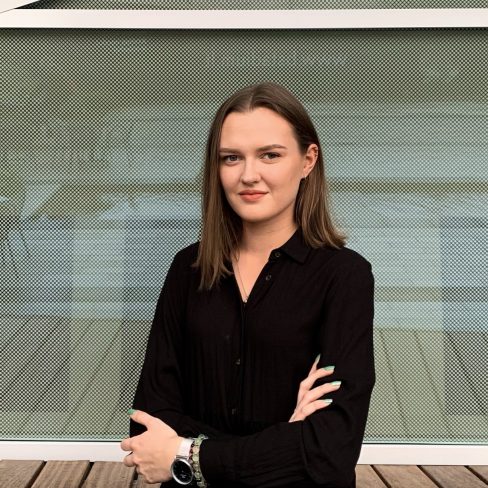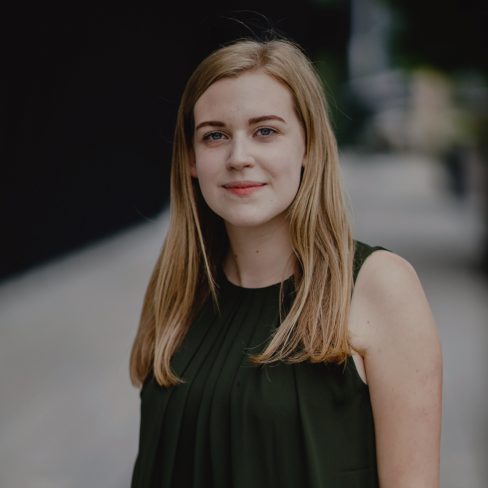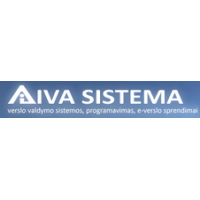STUDY PROGRAMME PLAN
|
Course units |
ECTS credits |
|
1st YEAR |
60 |
|
1 SEMESTER |
27 |
|
Compulsory course units |
27 |
|
Basics of Communication Theory |
6 |
|
Basics of Marketing and Social Networks |
6 |
|
Philosophy |
6 |
|
Psychology |
6 |
|
Professional Foreign Language (English / French / German) 1 |
3 |
|
2 SEMESTER |
33 |
|
Compulsory course units |
33 |
|
Basics of Public Relations |
6 |
|
Basics of Creative Industries |
6 |
|
Electronic Business and Startups |
6 |
|
Creative Management and Leadership Methods |
6 |
|
Introduction to Digital Marketing |
6 |
|
Professional Foreign Language (English / French / German) 2 |
3 |
|
2nd YEAR |
60 |
|
3 SEMESTER |
30 |
|
Compulsory course units |
24 |
|
New Media Communication and Journalism in the Era of Disinformation |
6 |
|
Digital Content and Computer Graphics |
6 |
|
Creative Writing and advertising Texts |
6 |
|
Ethics and Law Communication |
6 |
|
Alternatively elective course units |
6 |
|
Asian Community: Culture and new Media |
6 |
|
Integrated Project |
6 |
|
4 SEMESTER |
30 |
|
Compulsory course units |
30 |
|
Introduction to Research Methodology |
6 |
|
Gamification Methods and Technologies |
6 |
|
Term Paper |
6 |
|
Digital Advertising Design |
6 |
|
Social Network Marketing and Data Analytics |
6 |
|
3rd YEAR |
60 |
|
5 SEMESTER |
30 |
|
Compulsory course units |
24 |
|
Image Management |
6 |
|
Internship |
18 |
|
Alternatively elective course units |
6 |
|
E-publishing |
6 |
|
Information Crisis Management |
6 |
|
Production and Film Industry |
6 |
|
6 SEMESTER |
30 |
|
Compulsory course units |
24 |
|
Bachelor Thesis |
18 |
|
Elective Study Subject |
6 |
|
Alternatively elective course units |
6 |
|
Business Communication and Negotiation |
6 |
|
Fundamentals of Conflict Studies |
6 |
|
Management of Marketing Projects |
6 |
General competences and learning outcomes
- Personal and social abilities
- Ability independently research and learn in the field of communication and digital marketing achievements, new media and other emerging technologies, trends, and prospects of Lithuania and the world, understanding of the principles of self-help and ability to adapt them ensuring continuous development in changing socio-economic environment;
- Ability to ensure effective traditional and digital communication and collaboration in the traditional virtual environments for organizing media projects.
Subject specific competences and learning outcomes
- Knowledge and its application
- Ability to use socially responsible communication and digital marketing creatively with virtual work environments in defending the universal values of human rights, freedom of speech and freedom of information;
- Ability to put into practice the scientific knowledge of digital marketing technology use cases and evaluate the development potential of digital marketing technology to carry out innovative projects by using the acquired knowledge in new and unfamiliar environments;
- Ability of graduates to use socially responsible communication technology and creative expertise in innovation and ability to use social networks, developing projects in the electronic space.
- Research skills
- Ability to independently research and analyze the scientific literature, to think systematically and critically, to see the problematic issues of theory and practice;
- Ability to evaluate the organization’s philosophy and scientific concepts critically, to provide scientific and social analysis of the texts;
- Ability to assess the environmental conditions resulting from groups of people and individuals in relationships, ability to select relevant information, to organize, evaluate, develop logical approach;
- Ability to integrate different approaches to study and communicate in a correct communication using scientific terminology, ability to choose and apply appropriate analytical approaches, quantitative and qualitative methods.
- Special abilities
- Ability to organize the communication process for traditional and digital environments in fast changing environment, to develop and manage communication and media development projects, taking into account the interests of organizations, institutions, communities and other communication participants and the needs of target audiences;
- Ability to understand the characteristics of modern communication and digital marketing technologies to analyze their applicability in the social, designs economic and cultural learning, effective and creative public environments fulfil their implementation strategies, adoption of sustainable solutions;
- Ability to know and choose communication evaluation methods and to measure the results of communication activities;
- Ability to understand how communication and digital marketing technologies form modern communication, including the development of interdisciplinary and international range, structure and understand how via creative communication the added value in the society, economy and culture is created.
Studies are organized on weekdays. Classes typically start at 9:00 AM and end at 4:00 PM, with no more than four sessions held per day. In the English-taught program, a mix of online and in-person learning will be available for international students who haven’t yet received their temporary residence permit during the fall semester.
- Choose a study programme
- Fill in the application form at apply.mruni.eu
- Pay the non-refundable application fee (for non-EU citizens – 100 euros, for EU-citizens, MRU alumni, and Ukrainians – 50 euros)
- Receive your application evaluation results
- Confirm your acceptance by paying the first-year tuition fee and 50 euros registration fee (non-refundable)
- Sign the study contract
- Start Temporary Residence Permit application procedure
- Register to studies
Required documents:
- Secondary education diploma or equivalent including final grades
- Document proving English language level
- Motivational letter (please note that the authenticity of the motivation letter will be verified using specialized software, so it should be written without AI assistance)
- Passport copy
- Additional educational documents might be required depending on the country of residence.
Provided documents must be in color, have no cut corners (high quality scan).
Notes:
- The minimum 60% of maximum possible GPA is required in order to be considered for admission.
- By submitting the documents applicant agrees for one’s information to be shared with other institutions that the University might refer to while processing the academic verification.
- Applicants might be asked to participate in additional knowledge evaluation.
- There are no limits regarding age, but please note, if you have taken a gap of 3 years or more after high school graduation, we may ask you to take additional tests.
Required level – B2
Assessments of English language proficiency certificates equivalent to level B2:
- TOEFL IBT 72-94
- IELTS 5.5-6.5
- PTE score 59-75
- DUOLINGO 100-125
If you do not have a certificate proving your English language proficiency level, you can take the University Online English language level test. You will be able to choose this option while filling in the application. The test is free of charge.
Certificate is not required if your native language is English or if your previous studies were conducted fully in English language.
*Applicants who do not meet the required English proficiency level of B2 have the opportunity to study Preparatory English Language Courses online before studies.
- If the original educational documents/transcripts are in English, Lithuanian or Russian with an apostille (if required) on the scanned original, no translation needed.
- If original educational documents/transcripts are not in English, Lithuanian or Russian languages, then they have to be supplemented with an official translation.
- The official translation has to be confirmed with the sworn translator’s signature or official notarization.
- Accepted students shall present their original educational documents/transcripts to the International Office upon arrival to begin their studies.
Country Specific Requirements can be found here.
Recognition of Foreign Qualifications
- The evaluation and recognition of prior qualifications is a part of Mykolas Romeris University (MRU) admissions process.
- By submitting the online application you confirm that the documents are legitimate and that MRU can verify the authenticity of the documents by contacting its issuing authority and national ENIC/NARIC centre.
- Documents uploaded must be in good condition and in full colour. Documents issued in languages other than English, Russian, or Lithuanian must be accompanied with an official translation into English or Lithuanian.
- Before you apply make sure that you have a complete documentation package and that your qualifications are giving access to higher education according to the study programme level you are applying for at the MRU.
Recognition Criteria
- The purpose of an assessment is to compare a foreign qualification with a similar level qualification awarded in Lithuania according to quality, profile, content, workloads and learning outcomes.
- Your qualification will be assessed according to specific requirements for the programme you are applying for and whether your academic results are sufficient for studies at the MRU.
Right to Appeal
Recognition decisions can be appealed against to the Academic Recognition of Foreign Qualifications Concerning Higher Education Appeal Committee under the Lithuanian Ministry of Education and Science.
All appeals with supporting documents must be submitted to:
Centre for Quality Assessment in Higher Education
Ph.: +37052104778
Email: recognition@skvc.lt
Address: SKVC, A. Goštauto st. 12, LT-01108, Vilnius, Lithuania
The procedure of evaluation and recognition of academic qualifications
Application fee (non-refundable):
- for Non-EU citizens – €100
- for EU citizens, MRU Alumni, and Ukrainians – €50
Registration fee (non-refundable):
- €50
Tuition fee (EU/Non-EU citizens) per 1 academic year: €3176 per one academic year (2025-2026).
40% discount is applied to students from Ukraine. More information about fees applied for Ukraine citizens.
Payment information will be provided in the invoices issued in your online application form.
Student continues to pay the same tuition fee which was implied at the time of the admission.
E-mail: study@mruni.eu
Phone: +370 5 271 4700
WhatsApp: +370 6 564 6682
Office: I-122




